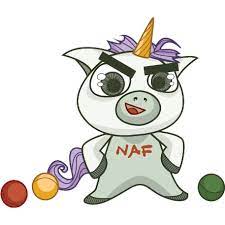Hi everyone. I just found out, thanks to messages from several of you, that email notices of new blog posts have been sent out to very few people since the beginning of January. I had just assumed the sudden sharp decrease in traffic was because a lot of people hated me. But now, I know it’s because a lot of people hated me AND because of tech issues. Thank you for your patience while the problem is being resolved. In the meantime, there’s a new blog post every Tuesday, so please create a recurring appointment on your calendar called “latest NonprofitAF masterpiece drops.”
This week, we talk about a few philosophies and terminologies related to donors. As a field that is dependent on the largesse (and sometimes smallgesse and mediumgesse) of donors, we’ve developed our own mental models and language around them. As our practices advance and evolve, thanks to movements like Community-Centric Fundraising, we need to examine what still works and what needs to be changed or phased out completely.Read more: 8 donor-related philosophies and terminologies we need to change or abolish
Think about the “donor pyramid,” for example. Remember when we couldn’t go to a fundraising conference without hearing some mention of the Pyramid? Now we hardly hear about it at all, probably because there’s general agreement that it sucks. Which is too bad, because it always conjured for me a cheerleader-like pyramid composed of donors, standing on one another’s shoulders, maybe holding pom-poms, forming a human triangle, which was a fun image to have.
Below, in no particular order, are a few other things I think we need to reconsider. As usual, this is just my opinion, though some of it may be blasphemous and cause some of you to be very vexed. Please feel free to disagree and add to the discussion.
1.Donor intent: The wishes of donors is something we’ve been trained to hold sacred. But there are some serious issues around it. In general, usually donors have less expertise in addressing the problems they’re donating to nonprofits to address, so it makes little sense that we prioritize their intent so highly. And donors who are now in the Great Country Club in the Sky, I’m sure many of them were lovely people, but why should they be allowed to control things from beyond the grave, especially as their intents don’t evolve with the times and the needs of the community and thus often becomes more and more irrelevant and possibly nonsensical? “This fund is only to be used to help children escape the life of chimney sweeping by training them to be cobblers.”
2.Donor engagement: It can be great when donors are fully engaged with nonprofits and are present and helpful. But “donor engagement” has often been warped into this philosophy that donors deserve to be entertained and to receive meaning in exchange for their donations, with terrible consequences, such as donors being involved in things they have no expertise on. The more we train donors to think they deserve to be involved, the more they expect it. How much time should we spend “engaging” donors when there are so many issues that need nonprofits’ attention. As a donor myself, I would rather the nonprofits I donate to focus their attention on meeting their missions than to show me a good time.
3.Donor as hero: Maybe because it “works” to bring in money when we lavish praise on donors and center them in the narrative in the fight against injustice. But it’s problematic for many reasons, including allowing donors and everyone to gloss over the inequitable origin of a lot of wealth (slavery, stolen Indigenous land, worker exploitation, environmental degradation, tax avoidance, colonization, imperialism, etc.). It also reinforces this individualistic savior mindset when what we need to address injustice is a collective, communal way of thinking. So, let’s stop saying we should treat donors like heroes. In fact, let’s just stop it with the hero narrative altogether. Contributing to making the world better does not make anyone a “hero;” it’s the baseline for being a decent human being and community member.
…









